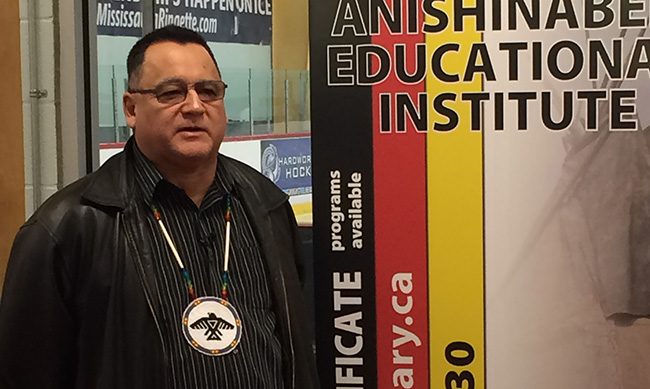Economic spin-offs from Little NHL upwards of $18 million

By Sam Laskaris
The Little NHL Tournament has certainly grown. And not simply in terms of participating teams.
The 45th annual running of this event, which is officially the Little Native Hockey League Tournament, is being held this week in Mississauga. A record 195 Native youth squads from across the province are competing in the tourney, which began Monday and continues until today (Thursday).
That’s a far cry from the 17 squads that took part in the inaugural tournament in 1971 on Manitoulin Island. Back then players from out-of-town teams were billeted in the homes of local players and families.
Fast forward to the present and the tournament is now a massive undertaking. Besides various arenas having games around the clock during the day, hotels, restaurants and malls in Mississauga are also packed with participating players and their family members and supporters.
And many of them are spending and then spending and then spending a bit more. Organizers estimate more than $18 million will be pumped into the local economy during the week because of the tournament. That’s quite the economic spinoff.
Granted, the Little NHL Tournament is no ordinary event. It is not only the longest-running Native youth hockey tourney in the country but also the largest one in North America.
This marks the fourth consecutive year the tournament has been staged in Mississauga, one of Canada’s largest cities. And it’s about a 20-minute drive to Toronto, the country’s most populated city. “People come down here and they stock up,” said Marvin Assinewai, the president of the Little NHL. “All the malls now know when this tournament is on.”
Anything you can imagine is being bought and taken back to First Nations communities across the province. Even vehicles.
“If you want a full-size truck with all the bells and whistles, it’s going to be a lot cheaper than what you would pay for it in a northern community,” Assinewai said.
Grand Council Chief Patrick Madahbee said in some cases during the week of the tournament people even rent U-hauls and jam them full of purchases before driving back to their First Nation. “They don’t have any outlet malls where they are from,” Madahbee said. “Or what they do have the prices are so high there.”
As a result, many families participating in the tournament will stock up on everything ranging from dry goods to clothing. In some cases Madahbee has heard of entire squads going to stores to be outfitted with hockey gear.
“It’s not a small amount of money involved when you go out and buy hockey equipment for a whole team,” Madahbee said.
And there’s no signs that the tournament will stop growing. This year the event shattered its previous record of 178 teams that took part in the 2015 tourney. With just a slight increase more than 200 squads will be expected to take part in the 2017 running.
The Moose Cree First Nation has been announced as the host for next year’s tournament. But Little NHL officials have not revealed where the tournament will be staged.
Negotiations are ongoing with city of Mississauga representatives to determine whether to return for another year.
This year’s tournament concludes today. All finals will be staged at the Hershey Centre.


